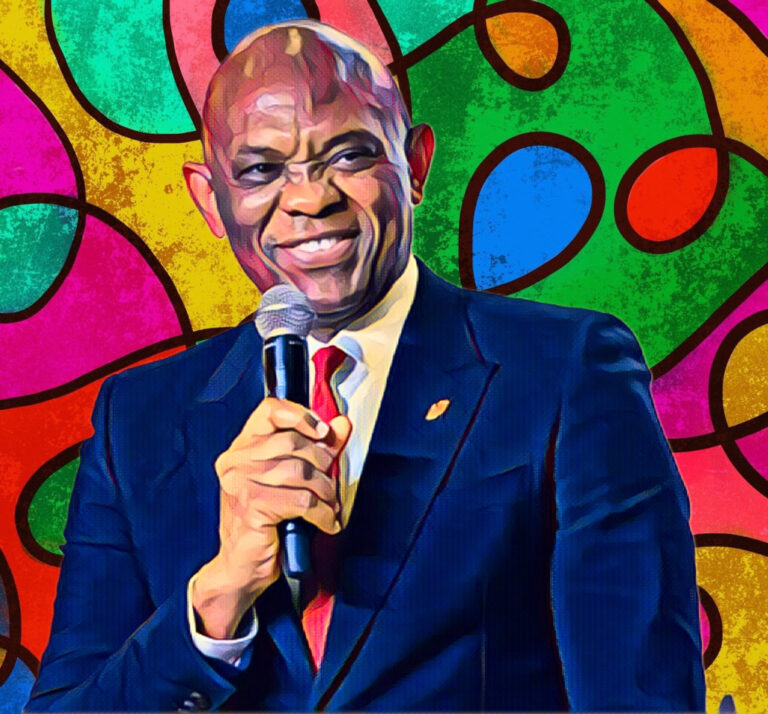In Riyadh’s glittering skyline — where the Future Investment Initiative (FII) Institute gathered the world’s most influential business minds — Nigerian investor and philanthropist Tony Elumelu delivered a wake-up call that echoed far beyond the conference halls.
Speaking at the “Board of Changemakers: Financial Markets” plenary, alongside global banking icons such as Jane Fraser (Citigroup), Bill Winters (Standard Chartered), and C.S. Venkatakrishnan (Barclays), the Heirs Holdings and United Bank for Africa (UBA) chairman spotlighted a paradox shaping the 21st century: the race for artificial intelligence cannot leave Africa behind.
“We’re talking about data and AI, but over 600 million Africans still lack electricity,” Elumelu said pointedly. “You need power to run data. You need access to create opportunity. Without fixing that, AI will deepen inequality rather than solve it.”
The Power Problem Behind Africa’s Digital Future
Elumelu’s message was clear — Africa’s infrastructure gap is the true barrier to progress. While nations across the world are building quantum computing centers and AI-driven economies, large parts of Africa remain in the dark — literally.
Electricity, internet access, and data infrastructure are the essential engines of the AI revolution, yet they are also Africa’s most pressing bottlenecks. “Capital for infrastructure is not available,” Elumelu lamented, “and without it, financial inclusion, innovation, and AI are just buzzwords.”
His remarks cut through the optimism that often dominates tech summits, grounding the conversation in the continent’s urgent realities.
AI: A Divided Frontier
In developed economies, artificial intelligence has become as common as electricity — optimizing financial systems, logistics, and healthcare. But in Africa, Elumelu noted, AI remains a luxury, trapped behind systemic barriers.
“In some markets, AI is a commodity. In Africa, it’s still a concept,” he observed. “The rate of adoption is low, and the infrastructure to make it work is weak. We need to change that story.”
To Elumelu, democratizing AI means creating the conditions for every African entrepreneur, student, and innovator to access digital tools — not just the privileged few in global tech centers.
Capital, Courage, and Collaboration
Elumelu urged international investors to move beyond symbolic partnerships and toward tangible capital flows into Africa’s backbone sectors — power, connectivity, and logistics.
“In our credit rooms and boardrooms, we must make space for Africa,” he said. “When we fund infrastructure, we are not doing charity; we are investing in the world’s next growth frontier.”
He called on global financial institutions to embed African infrastructure into their AI strategies — framing it not as aid, but as a smart bet on shared prosperity.
A Vision Shared Across the Continent
Elumelu’s stance aligns with fellow African tech titan Strive Masiyiwa, founder of Econet Group, who has championed similar calls for investment in digital infrastructure. Both leaders represent a new generation of African visionaries who see the future not as something to import, but something to build from within.
Together, they advocate for a continent where energy, technology, and finance merge to drive self-sustaining growth — a future where Africa is not merely a consumer of global innovation but a creator of it.
Beyond Banking: Building the Future
Beyond his leadership at UBA and Heirs Holdings, Elumelu’s expanding portfolio — spanning oil, energy, real estate, and frontier technologies — mirrors his philosophy of “Africapitalism”: empowering the private sector to drive transformative change.
His investments in emerging technologies and sustainable infrastructure are more than business ventures; they are statements of belief that Africa’s prosperity will come from within its own borders.
The Road Ahead
Elumelu’s call at FII was not a plea — it was a challenge. For policymakers, it was a reminder that regulation without infrastructure is hollow. For investors, it was an invitation to participate in Africa’s reinvention.
And for the world, it was a declaration that the digital age will not be complete until Africa’s lights — both literal and metaphorical — are switched on.
“We must democratize access to AI,” Elumelu concluded. “Because when Africa rises, the world’s prosperity becomes truly global.”

